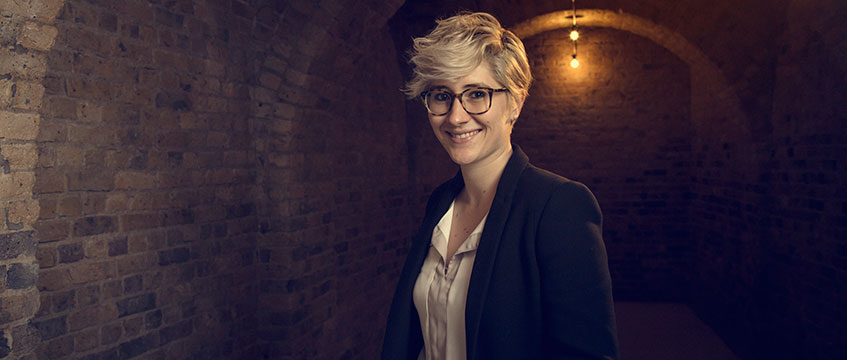Vanessa Lee Butz, founder, District Technologies
Over the past six years I have moved between London and Berlin seven times.
Now, with my company in full swing, I have been pulled back to London, despite the fact I am originally from Munich.
Berlin has been described as “poor but sexy” thanks to the creatives, punks and artists who made their way there more than a decade ago. But the story goes back much further.
The division of Berlin after World War II had a long-lasting effect on the city.
Even today, 27 years after its reunification, the economic impact – stark economic, educational and opportunity differences between east and west Germany – is clearly noticeable.
The division caused industries to leave Berlin for major cities such as Hamburg, Munich, Frankfurt or Cologne, which have a strong middle class.
Compared with London and Paris, which are the main economic engines of their respective countries, industry in Germany is more spread out.
A lot of real estate investors lost vast amounts of money after the wall fell.
Instead of companies or families with money returning, Berlin saw a huge influx of people who had no money but who were very creative at squatting and taking over empty warehouses.
Berlin in the 1990s was wild, raw and unapologetically rebellious.
It attracted more artists and musicians who, in turn, started designing posters to advertise their events, causing the first wave of designers and design agencies to set up small businesses (in essence the first start-up wave).
With the rise of the internet, these posters turned into websites and the birth of digital natives in Berlin began.
Neither science universities, large industries nor government stimulus, as in other leading entrepreneurial clusters, was the spark.
Berlin in the 1990s was wild, raw and unapologetically rebellious
Instead, it was the raw energy of creative freedom and lack of monetary limitations that Berlin offered them. Its start-up scene is now growing exponentially.
But when I lived there I was frustrated that the government would advertise the German capital as a mecca for start-ups, when, in reality, the German capital is quite digitally dysfunctional and operates one of the most antiquated paper-driven city government systems I have ever witnessed. Nothing can be filed online.
I love the community and culture in Berlin but I sometimes can’t get my head around how digitally illiterate its systems are.
All start-ups have benefits they can benchmark if they surround themselves with their customers, clients and talent pools to recruit from.
This is why SoundCloud moved from Stockholm to Berlin in 2010.
It makes sense that it became Berlin’s first globally innovative unicorn (ignoring the also well-deserved success of Rocket Internet) given the city’s global influence on techno and electronic music.
I knew when we launched the business club and co-working hub Factory that real estate owners were laughing at us.
They didn’t believe anyone would rent a desk in an open-plan office space with bare walls and concrete floors.
Oh how they were wrong. We filled the spaces with Google, Twitter, Lufthansa, Mozilla, Pinterest, Uber, Zendesk and many more.
When I launched Interchange in London it became ever more clear that owners were venturing into more flexible co-working spaces (the Crown Estate, British Land, Brockton Capital and Blackstone to just name a few) and those such as Factory and WeWork were becoming owners and profiting from larger margins when they bought buildings outright.
When I came to launch District – a start-up to help companies upgrade their building to be ready for the smart city revolution – I tried to set up in Berlin.
But as we were approaching large real estate funds and developers, we ended up spending most of our time on planes and realised the city was the wrong place for the business.
So we moved back to London, where a much larger pool of customers was waiting for us. Now I spend the majority of my time between London and New York.
Brexit or no Brexit, for me the hub is still London and I believe it will be so for a long time, as it must keep fighting for its global and European innovation status, fostering start-ups, technology and pioneering smart city technologies.











